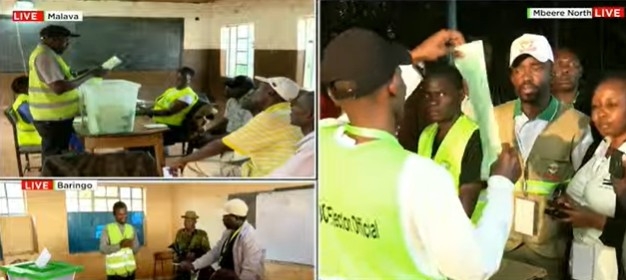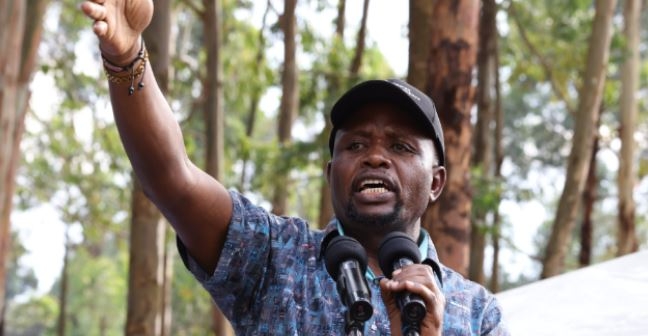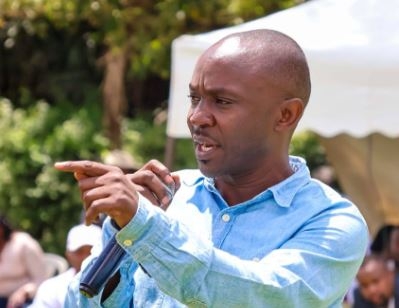Strengthening the social security system can significantly reduce old-age poverty and dependency ratios.
Although social security is a human right enshrined in the Kenyan constitution and in the Universal Declaration of Human Rights of 1948, a paltry 17 per cent of the country’s population has this security, locking out the vulnerable majority.
According to the Kenya Bureau of Statistics, as of 2023, over 13.9 million adult Kenyans lacked retirement savings. This low level of coverage has led to a high dependency ratio in the country estimated at 69 per cent, pilling pressure on the working population.
Income replacement ratio upon retirement of just 40 per cent, well below the recommended level of 75 per cent.
In an interview with the Star Newspaper, NSSF CEO David Koross said a well thought out pension scheme is a sure remedy to the high dependency ratio that has pushed many into the poverty bracket.
To cure this, the National Social Security Fund (NSSF) has rolled out a membership drive for its Haba Haba pension plan expected to bring on board at least a million new members drawn from informal sector, Kenyans in diaspora and refugees.
Launched in late 2019, Haba Haba gives members a chance to save a minimum of Sh25 a day, with the option of withdrawing 50 per cent of their contribution after consistently contributing for a minimum of five years.
Haba Haba, which means “bit by bit” in Swahili allows for easy, anytime, anywhere savings Registration, contributions, and access can be handled via mobile phone by dialling Unstructured Supplementary Service Data (USSD) *303# or by contacting the NSSF via WhatsApp.
The registration process only requires an individual’s first and last names, and government identification (ID) number.
Contributions can be paid in person at NSSF offices or through the mobile money platform M-Pesa.
‘’This product provides a holistic approach to Social Protection by providing a retirement benefit, social insurance cover, permanent disability cover, funeral expenses cover, and a sickness benefit cover. It is a handy package for people in the informal sector who are a critical mass that cannot be ignored,’’ Koross told the Star.
The product also caters for Kenyans in diaspora, allowing them to save from as little as $10 or (Sh1, 300) based on the current exchange rate.
According to NSSF, extending social security coverage to Kenyans living abroad is a strategic initiative that promises substantial benefits both for individuals and the nation.
‘’By securing their financial future and contributing to the economic growth of Kenya, diaspora Kenyans can play a pivotal role in the country's development journey.’’
Koross adds that building a stronger social security system in Kenya is not just about securing individual futures; it's about laying the foundation for a prosperous and resilient nation.
It is estimated that over three million Kenyans reside in various countries around the globe, remitting billions of dollars annually.
The latest data from the Central Bank of Kenya shows Kenyans living and working abroad send home the highest amount in July since December last year.
The weekly bulletin shows that the country's diaspora population sent home $414.3 million (Sh53.4 billion) compared to Sh378.1 million (Sh49.1 billion) in June, representing a marginal percentage difference.
The cumulative inflows for the 12 months to July 2024 remained steady at $4.4 billion (Sh568 billion) compared to $4.1 billion (Sh529 billion) in a similar period in 2023, an increase of 12.2 per cent.
Diaspora remittances have been Kenya's leading source of foreign exchange earnings since 2017, surpassing the revenues generated from tea, coffee, and tourism
The opening of the product to the diaspora population was a result of a survey conducted by the Fund, which established that a growing number of returnees are investing in sectors such as real estate, technology, and agribusiness.
‘’These investments not only provide returns for the individuals but also bolsters the local economy, creates jobs, and contributes to sustainable development.’’
Globally, robust national social security systems have played a fundamental to economic stability and growth.
Countries with well-developed national social security systems, such as those in Europe, demonstrate higher levels of economic resilience and social welfare.
The report by Cytonn shows that investing in a national social security scheme reduces the economic strain on working-age individuals who often support elderly relatives, thereby increasing disposable income and stimulating economic activity.

















